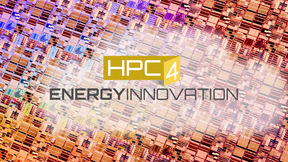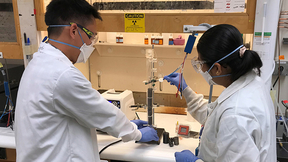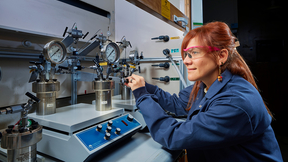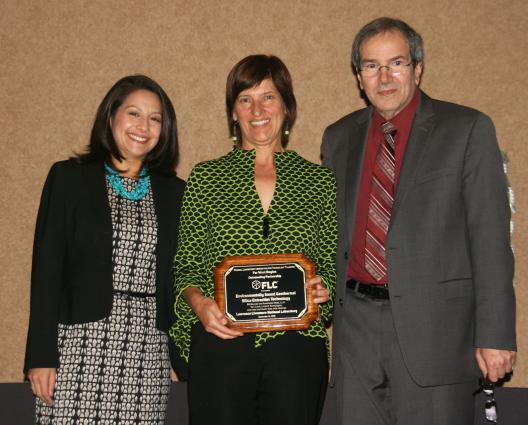Lab wins two regional FLC awards
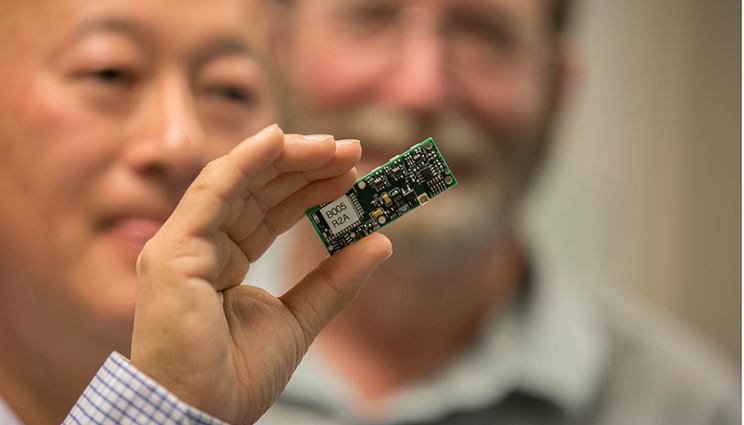 (Download Image)
Lawrence Livermore electrical engineer John Chang (left) and electrical engineering technician James Zumstein examine a Wireless Battery Sensing and Failure Eliminator (WiBSAFE) technology prototype, which won a Federal Laboratory Consortium Far West/Mid Continent Region award for “outstanding technology development.” Photo by Julie Russell
(Download Image)
Lawrence Livermore electrical engineer John Chang (left) and electrical engineering technician James Zumstein examine a Wireless Battery Sensing and Failure Eliminator (WiBSAFE) technology prototype, which won a Federal Laboratory Consortium Far West/Mid Continent Region award for “outstanding technology development.” Photo by Julie Russell
Two teams of LLNL scientists, supported by a Lab business development executive, have each received regional awards for technology transfer from the Federal Laboratory Consortium (FLC).
This year's awards, one for technology work and the other for a partnership, were presented last month during the FLC's two-day Far West/Mid-Continent regional meeting in Albuquerque, New Mexico.
Started in 1974, the FLC assists the U.S. public and private sectors in utilizing technologies developed by federal government research laboratories. It is comprised of more than 300 federal government labs and research centers.
Since 2007, LLNL has garnered 28 regional awards for technology transfer from the FLC.
One LLNL team captured its award for "outstanding technology development" for its work to develop the Wireless Battery Sensing and Failure Eliminator (WiBSAFE) technology
The WiBSAFE technology was developed by researchers from LLNL, Eagle Picher Technologies-Yardney Division, eNow and Livermore-based PolyStor Inc. under a 2013-2016 "work-for-others" contract.
The subsequent work was funded under a cooperative research and development agreement supported by the Department of Energy’s Advanced Research Projects Agency-Energy (ARPA-E) program.
WiBSAFE is a compact sensing system that enables users to wirelessly monitor and manage the health of high-capacity power cells, such as lithium-ion batteries, at the cell level through continuous measurement of vital battery characteristics, such as voltage, current, temperature, strain and chemistry.
WiBSAFE is especially useful for monitoring power cells in critical environments, such as cars, planes and spacecraft, where predicting and avoiding battery-related problems is crucial.
LLNL team members who worked on WiBSAFE include electrical engineer John Chang; electrical engineering technicians James Zumstein and Marianne Ammendolia; mechanical engineers Jack Kotovsky and Todd Bandhauer (who has since left the Lab); mechanical engineering technician Noel Peterson and chemical engineer Joe Farmer (retired).
Annemarie Meike, a business development executive (BDE) in the Lab’s Industrial Partnerships Office, has handled the technology transfer efforts for both of the winning teams.
Meike was a key part of the Lab’s "outstanding partnership" FLC regional award, which included two companies – Limtech Technologies Inc. of Nahunta, Georgia and Woo Holdings of Sun Valley, California – which both licensed LLNL’s geothermal silica extraction technology.
"There are times when it takes an ecosystem to develop and transfer technology," said Meike, who handled the licensing of the Lab technology to the two firms. "The two startup companies licensed the same environmentally friendly technology from the Lab.
"Understanding that the companies had complementary skillsets, and with their permission, I introduced them. Rather than seeing each other as competitors, the companies understood that combining efforts to demonstrate the technology would be more beneficial. Now, the two companies, supported by retired LLNL geochemist Bill Bourcier, have successfully demonstrated the technology on a pilot scale."
The technology was developed by Bourcier and former LLNL geochemist Carol Bruton, who has since left the Laboratory.
LLNL’s geothermal silica extraction technology is a process for removing marketable colloidal and precipitated silica from geothermal fluids while co-producing potable water. Silica co-production makes geothermal energy more competitive by offsetting production costs by about one cent per kilowatt-hour.
Contact
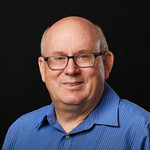 Stephen Wampler
Stephen Wampler
[email protected]
(925) 423-3107
Related Links
LLNL Industrial Partnerships OfficeFederal Laboratory Consortium
Tags
Industry CollaborationsTechnology Transfer
Energy
Featured Articles
